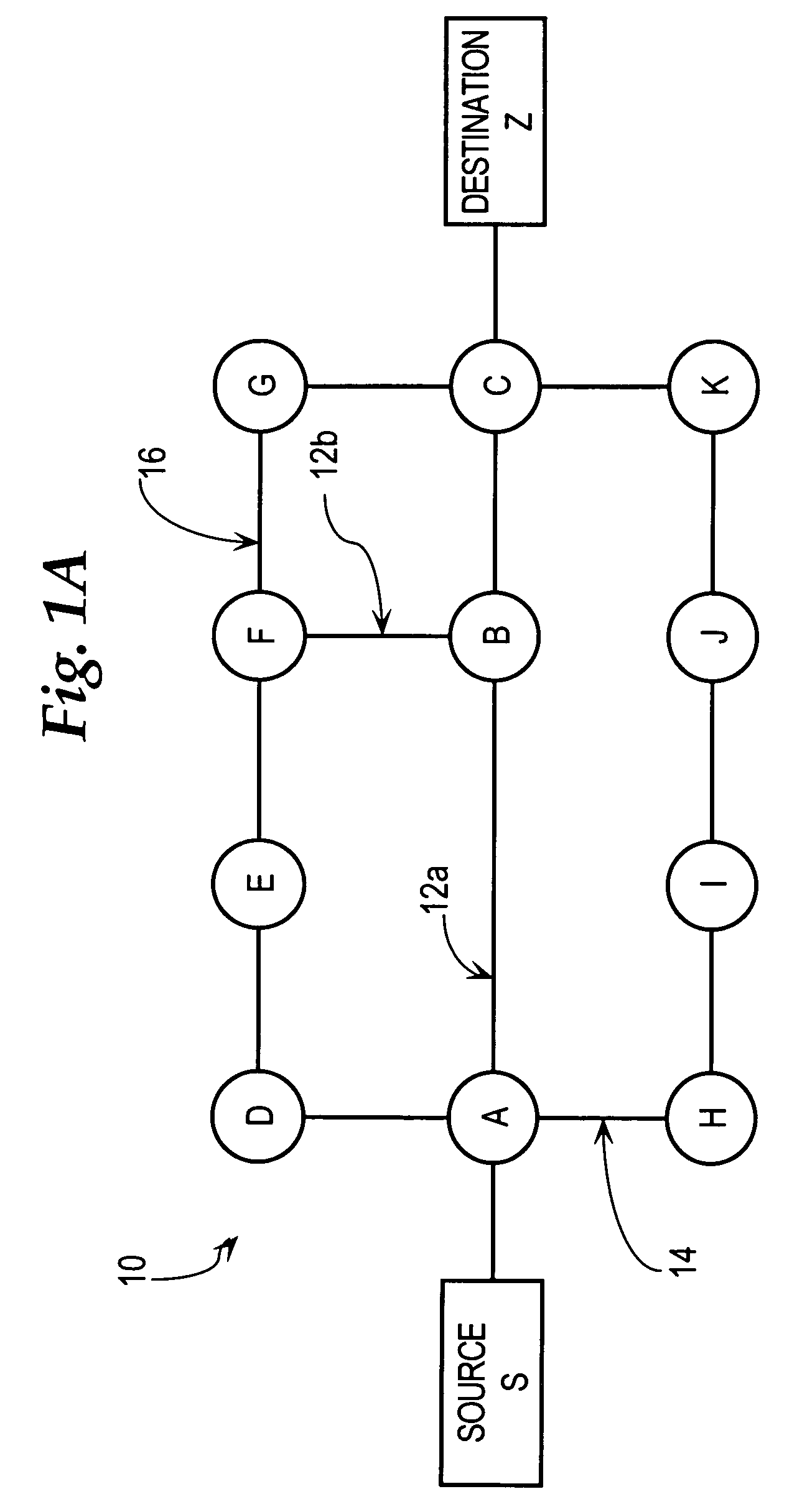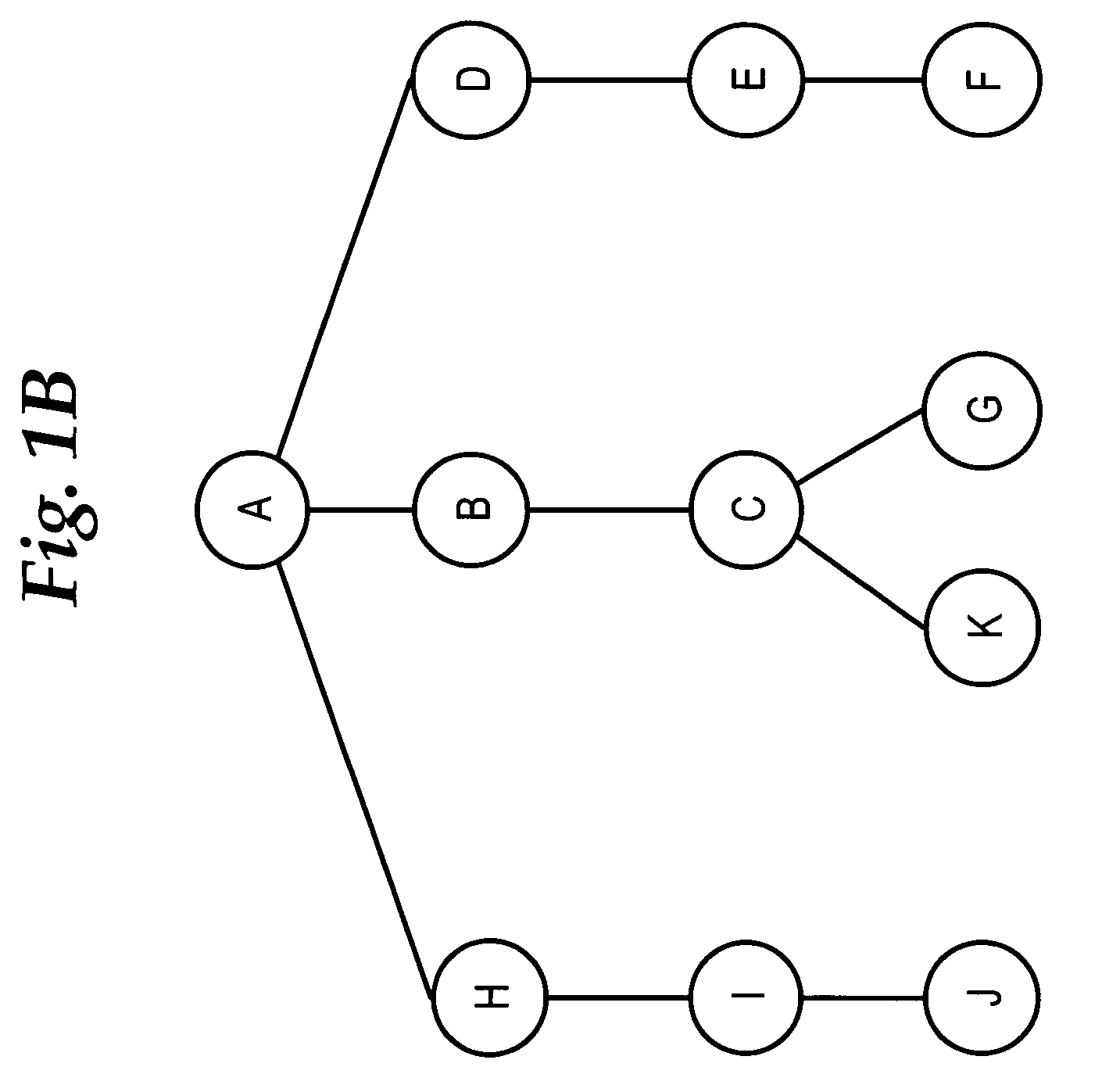Method and apparatus for determining network routing information based on shared risk link group information
a technology of network routing and information, applied in the field of routing data in the network, can solve the problems of lsdbs, ribs and fibs across the network becoming inconsistent, and disruption for a longer period of tim
- Summary
- Abstract
- Description
- Claims
- Application Information
AI Technical Summary
Problems solved by technology
Method used
Image
Examples
Embodiment Construction
[0024] A method and apparatus for determining network routing information based on shared risk link group information is described. In the following description, for the purposes of explanation, numerous specific details are set forth in order to provide a thorough understanding of the present invention. It will be apparent, however, to one skilled in the art that the present invention may be practiced without these specific details. In other instances, well-known structures and devices are shown in block diagram form in order to avoid unnecessarily obscuring the present invention.
[0025] Embodiments are described herein according to the following outline: [0026] 1.0 General Overview [0027] 2.0 Structural and Functional Overview [0028] 2.1 Use of Link State Databases [0029] 2.2 Determining a Shortest Path Without Information About Shared Risk Link Groups [0030] 3.0 Method For Determining Routing Information Based on Shared Risk Link Group Information [0031] 4.0 Implementation Mechan...
PUM
 Login to View More
Login to View More Abstract
Description
Claims
Application Information
 Login to View More
Login to View More - R&D
- Intellectual Property
- Life Sciences
- Materials
- Tech Scout
- Unparalleled Data Quality
- Higher Quality Content
- 60% Fewer Hallucinations
Browse by: Latest US Patents, China's latest patents, Technical Efficacy Thesaurus, Application Domain, Technology Topic, Popular Technical Reports.
© 2025 PatSnap. All rights reserved.Legal|Privacy policy|Modern Slavery Act Transparency Statement|Sitemap|About US| Contact US: help@patsnap.com



